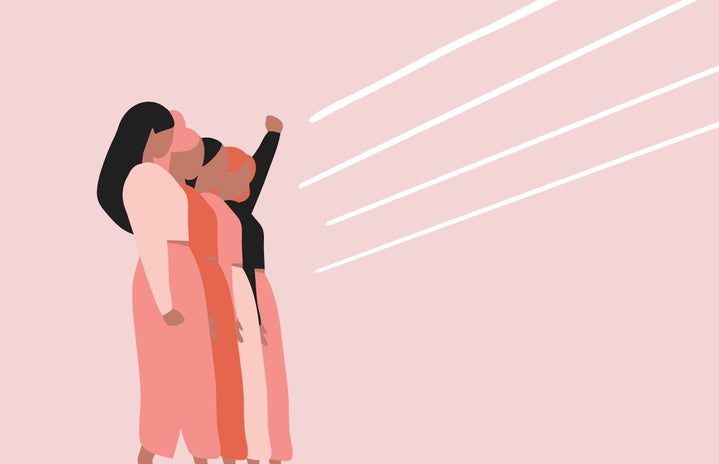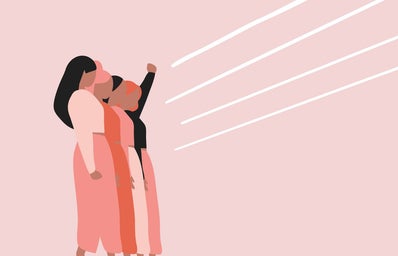Even though Women’s History Month has passed, it’s important to remember some iconic women in Puerto Rican history. These women have made incredible strides in important issues spanning from independence movements, to advocating for accessible education and fair wages. Here’s a list of 8 women who became symbols of rebellion against injustice.
- Mariana Bracetti (1825-1903)
-
Patriot and leader of the Puerto Rican Independence Movement in the 1860’s, she’s better known as “Brazo de oro” (Golden Arm) for her involvement in the “Grito de Lares”, first and one of the most iconic revolts of the Independence movement in Puerto Rico against against Spain. She also sewed the Lares flag, the symbol for the potential Republic of Puerto Rico, but they were defeated.
She was later imprisoned after the failed revolt with the other survivors. She gained her freedom under the General Decree of Amnesty of the new Spanish Republican Government in 1869. She went back to her hometown in Añasco where she died in poverty and was forgotten at the age of 78. She is now mostly remembered for sewing the flag, but she was much more than that. Bracetti had an important role to play in the revolution and she also helped those in need.
- Luisa Capetillo (1879-1922)
-
She was a Puerto Rican anarchist and pioneer of feminism and syndicalism on the island. An intellectual, writer, journalist and labor leader. She was the first woman to wear pants out in public in 1919, causing a scandal that got her arrested and tried in court. Charges were dropped when she argued that it was her civil right to wear what she wanted. She spent her 30’s leading strikes in Puerto Rico, the US, and Cuba (they tried deporting her for it). She gained recognition for being an outspoken woman who fought for women’s equality and worker’s rights. Through her writing, she was also a strong advocate for anarchism and feminism. Her primary topics were free love, women’s rights, better wages and conditions for workers, and the class struggle in favor of libertarian socialism.
- Ana Roqué de Duprey (1853-1933)
-
She was a writer, educator, suffragette leader, scientist, and one of the founders of the University of Puerto Rico. She was made an honorary member of the Paris Society of Astronomers. She became the youngest teacher’s assistant in Puerto Rico at the age of 11 and in her house, she founded her own school just two years later. In 1885, she earned a bachelor’s degree in Science and Philosophy. Nine years later, she founded La Mujer (1894), Puerto Rico’s first women-only magazine, and the first of many revolutionary publications she would launch during her lifetime, in addition to writing many books, articles, and essays. She’s considered a feminist pioneer on the island, where she founded the first feminist organization: the Puerto Rican Feminist League, in 1917 (she was the first president). Later on, it focused on women’s voting rights and its name changed to the Suffragist Social League in 1921. Roqué died two years before women gained the right to vote.
- Blanca Canales (1906-1996)
-
Educator and a leader of the Puerto Rico Nationalist Party, she organized the feminine branch of the party under the group The Daughters of Freedom. In 1950, she led the members who participated in the “Grito de Jayuya”, in which the nationalists took control of the town for 3 days. The nationalists gave up on November 1st, 1950; Canales was accused and arrested for killing a police officer, as well as wounding three other people by setting the post office on fire. After a brief federal court hearing, she was sentenced to life plus an added 70-year sentence. In 1967, after 17 years in prison, she was pardoned by the governor Roberto Sánchez Vilella. She continued to be a strong advocate for independence and a defender of the rights of Puerto Ricans until the day she died.
- Adolfina Villanueva (1946 -1980)
-
A black, poor woman, without a formal education and mother to six children. She was murdered on February 6th, 1980 by a police sergeant, while she was trying to defend her home in Loíza and stop the authorities from evicting her family. On numerous occasions, she had tried to fight the eviction by searching for legal help at the Office of Help for the Citizen at la Fortaleza, but she was not attended. On February 6th, she faced off against 5 bailiffs and 16 police officers who came to enforce an order of eviction. After they launched tear gas into the house to force the family out, Adolfina came out with a machete in hand and threw kerosene at the officers. Shots were fired almost instantly at the home and wounded her children and husband. The sergeant responsible for Adolfina’s death was absolved in court by the jury. No one responded or was found responsible for her death, for the attack against her family, nor for the damages against their personal effects by the demolition of the property just hours after her death. She was a strong woman who fought for what she believed in. She has become a symbol of the power and the courage of Puerto Rican women and of the struggle of women in poverty and women of color on the island.
- María de las Mercedes Barbudo (1773 -1849)
-
The political activist had access to education because she was the daughter of a Spanish officer, to later dwell into social activism. Barbudo was the first Puerto Rican female “Independentista”, first woman to advocate for the independence of Puerto Rico. At the time, the Puerto Rican Independence Movement had ties to the Venezuelan rebel movement led by Simón Bolivar. She was inspired by Bolivar’s dream of liberating and creating a unified Latin America, which included Puerto Rico and Cuba. She wrote and befriended many Venezuelan revolutionaries like José María Rojas, whom she corresponded with. The Spanish Government on the island was suspicious of the correspondence she had with the Venezuelan revolutionary factions, and some letters she received were held by officials and sent to Governor Miguel de la Torre. He ordered her arrest under the charge of planning to overthrow the Spanish Government on the island and, since Puerto Rico didn’t have a women’s prison at the time, she was held at the Castillo San Cristobal without bail. She was sentenced to be exiled to Cuba, where she was held in an institution. She later escaped with the help of her friend José María Rojas to Venezuela. She was never married and had no children. She never returned to Puerto Rico and died in 1849 and is buried in the Cathedral of Caracas next to Simón Bolivar.
- Lola Rodríguez de Tió (1843-1924)
-
A great Puerto Rican revolutionary, journalist and poet inspired by the freedom of her country. Lola Rodríguez de Tío wrote the lyrics for the patriotic anthem “La Borinqueña” during the insurrection of the “Grito de Lares” in 1868 and suffered persecution all her life for her firm opposition to the Spanish Regime. She was first exiled to Caracas, Venezuela and later to Cuba, but she had to leave, so she moved to New York. After the War for Independence, she came back to Cuba where she became an inspector of public schools. The phrase “Cuba y Puerto Rico, de un pájaro las dos alas” (“Cuba and Puerto Rico two wings from the same bird”) comes from her famous poetry book “My Book of Cuba”. Funny enough, this phrase is incorrectly attributed to the Cuban poet José Martí. She was also the first Puerto Rican-born woman poet to have a reputation as a great poet throughout Latin America. A firm believer in Women’s Rights, and also committed to the abolition of slavery.
- Isabel Freire de Matos (1915 – 2005)
-
Writer, educator, and journalist, Freire de Matos was the author of various children’s books. She was an advocate for the independence movement during her years as a student at the University of Puerto Rico (UPR); Freire de Matos continued postgrad studies in the UPR and later moved to Paris, France for a year to study Comparative Literature at the Sorbonne. She founded the Eugenio María de Hostos College in 1954, which she directed for 25 years before retiring.
Check them out.


